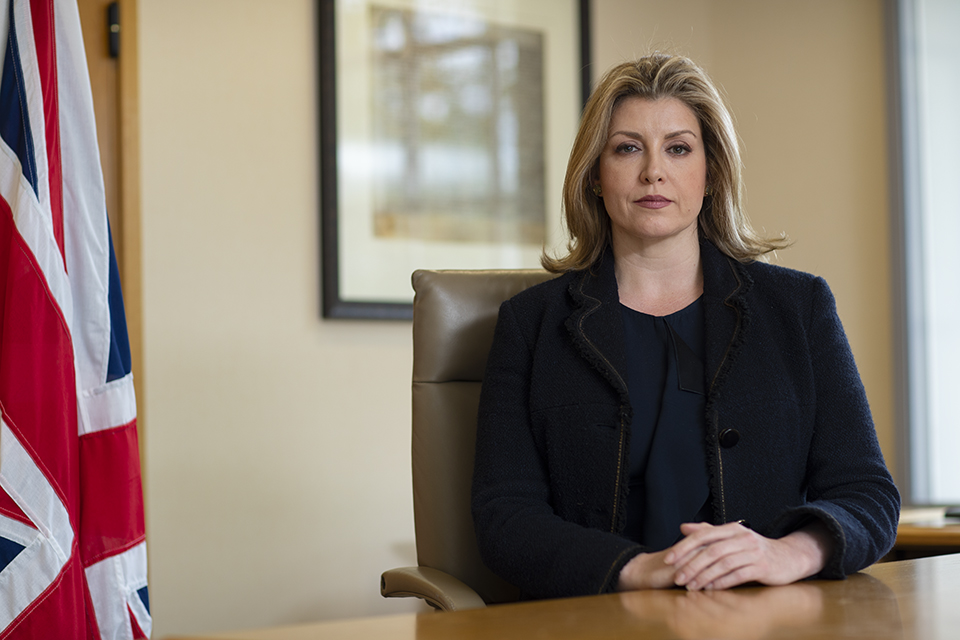UK response to the Ebola outbreak in the Democratic Republic of the Congo
Written Ministerial Statement from International Development Secretary Penny Mordaunt on the UK response to the DRC Ebola outbreak.

Following the declaration of an outbreak of Ebola in Equateur Province, Democratic Republic of the Congo, on 8th May, I am updating the House on what the British Government is doing to support the response.
The Government of the Democratic Republic of the Congo and the World Health Organisation are leading the response. They have issued a joint funding appeal and response plan. The UK has acted quickly in support of the Government and the WHO.
I have announced today that the Department for International Development (DFID) will be providing £5 million in funding to the World Health Organisation’s response plan. This money will be made available immediately and will support the delivery of a range of WHO activities, including: surveillance, case management, laboratories, coordination, logistics, and operational readiness in neighbouring areas.
In addition to direct support to the joint Government of DRC and WHO appeal, the UK has already supported a variety of elements of the response to the outbreak. The UK has been instrumental in ensuring that lessons have been learned from previous Ebola outbreaks. For example from the Ebola outbreak in West Africa, we have learned the important of acting early and making sure sufficient resources are allocated from the outset. We have invested heavily in global preparedness, early response mechanisms, and vaccines.
In 2014, DFID worked with the Wellcome Trust to develop an experimental Ebola vaccine, thousands of doses of this vaccine are currently being issued by WHO, Médecins Sans Frontières and the Government of DRC through support from UK aid and Gavi, the Vaccines Alliance. Health workers and other frontline staff began receiving the vaccine on 21st May.
Three experts from the Department of Health and Social Care’s UK Public Health Rapid Support Team – two epidemiologists and a data scientist – are being deployed to the DRC imminently to assist our partners in tracking the spread of the disease so that it can be tackled quickly and effectively. Laboratory support has also been offered.
The UK is also a major supporter to a wide range of organisations and response mechanisms which are currently tackling the outbreak. The UK is the largest contributor to the United Nations’ Central Fund for Emergencies and the second largest contributor to the World Health Organisation’s Contingency Fund for Emergencies, including £4 million from the Department of Health and Social Care in March this year. Each of these have provided $2 million for the response. DFID has also made available £1 million from its joint research initiative on epidemic preparedness with Wellcome, alongside a further £2 million available from Wellcome to support improved diagnosis and treatment. The UK aid-supported Start Network of 42 international aid agencies has mobilised £250,000 to help tackle the outbreak. The UK also provides funding to the United Nations Humanitarian Air Service, which has mobilised two helicopters and an aeroplane to meet the logistical needs of the Ebola response.
In addition to the emergency Ebola response, DFID’s new £40 million Tackling Deadly Diseases in Africa programme (TDDAP) is enhancing longer-term preparedness, detection, and response in the region. £20.5m will enable WHO to do this. It builds on the UK’s support to WHO’s reform efforts and systems strengthening following the 2014 Ebola outbreak in West Africa. This is already delivering a much-improved and better coordinated response to the current Ebola outbreak in DRC, helping to prevent it from developing into an epidemic that could seriously threaten more lives and prosperity across Africa and the world. In the future, the programme will also support another specialist regional organisation; this component is currently out to tender. TDDAP also contains a contingency mechanism of up to an additional £20m, which allows the UK to swiftly respond to emergencies like in DRC.
The WHO’s International Health Regulations Emergency Committee met on Friday 18th May and concluded that the Ebola outbreak in the DRC did not presently constitute a global health emergency. However, the committee concluded that the risk to the public in the DRC itself was “very high” and the risk to countries in the region was high.
In our increasingly interconnected world, diseases like Ebola do not respect borders. As a result of lessons learned from the 2014 Ebola outbreak in West Africa, the UK is working to strengthen the international response to health threats in order to ensure future outbreaks are identified quickly and tackled effectively This has included supporting the WHO in Africa to reform and improve their response. Helping countries to identify diseases early – and to limit their spread across borders – is beneficial for all of us: preventing potentially devastating damage in developing countries, and reducing risk to the UK population at home.
The WHO continues to assess the international risk of this outbreak as low. Public Health England has assessed the risk to the UK as negligible to very low and will continue to review this. Led by the Government Chief Scientist, the Department of Health and Social Care, and the Chief Medical Officer, with support from the Cabinet Office, colleagues across Government have ensured that the UK is in a state of readiness to respond should that risk change. The Government will continue to monitor the situation closely and will adapt its international and, if necessary, a UK domestic response as the situation evolves.